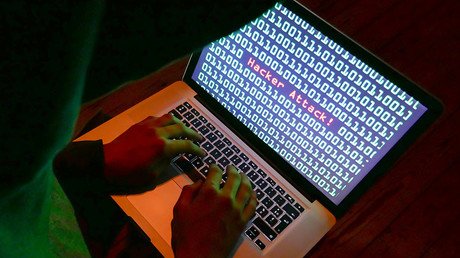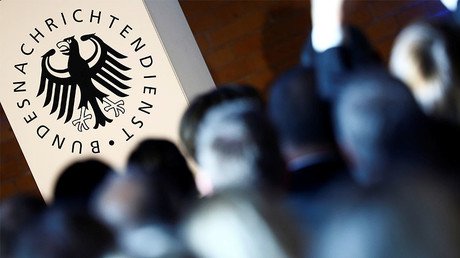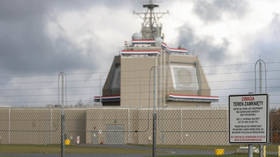Boogeyman picked: Germany concerned with Russian ‘meddling’ in upcoming election
With exactly three weeks to go before the German parliamentary election, the authorities are apparently looking for a boogeyman, as they claim, without evidence, that Russia could interfere in the voting process.
As Germany gears up for the next federal parliamentary election, the authorities are looking at potential threats to the democratic process. The latest polls conducted by German public broadcasters show German Chancellor Angela Merkel’s Christian Democratic Union (CDU) leading by a wide margin, with a 15-percent lead over its closest competitors – the Social Democrats.
However, government security officials have already called the legitimacy of the election into question, saying that Russia could influence it in a number of ways.
“We believe that Russia is capable of starting disinformation campaigns in connection with the elections to the Bundestag [the Lower House of the German parliament],” the head of the German state security agency (BfV), Hans-Georg Maassen, told Die Welt daily just one month before the election.
Maasen admitted, however, that it is “almost impossible for the intelligence services to find irrefutable evidence that Russia, for example, was behind the cyber-attacks on the Bundestag,” but that his service still believes “it is very likely.”
READ MORE: ‘Reflection of insecurity?’ Merkel claims ‘Russian hackers’ might derail German elections
The head of the BfV further obfuscated the situation by saying that it is still unclear whether the Kremlin has such plans at all. “It could well be that [the Kremlin] has no interest in complicating relations with Germany any further,” Maassen told Die Welt.
Long history of accusations
It is not the first time Maassen and his agency have warned against alleged Russian interference. In July, the BfV released a report in which it “assumed that Russian state agencies are trying to influence parties, politicians and public opinion, with a particular eye to the 2017 parliamentary election.”
The report blamed Russia for attacks on German political targets and accused Moscow of using internet trolls to sway public opinion and spread pro-Russian views. However, Maassen had to eventually admit that there was no evidence that Russia was responsible for the recent hacking attacks in Germany.
Merkel first claimed that Russia could try to influence the 2017 election as early as November 2016.
“We already know that we have to deal with reports from Russia or also with cyber-attacks from Russian sources or even with the reports from which we are confronted to some extent with false information,” Merkel said at a joint press conference with Norwegian Prime Minister Erna Solberg at that time.
Later in November, she once again addressed the issue by saying that “such cyber-attacks, or hybrid conflicts as they are known in Russian doctrine, are now part of daily life and we must learn to cope with them.”
Her concerns were echoed by Bruno Kahl, the president of Germany’s foreign intelligence service (BND) who told the Sueddeutsche Zeitung daily in November that his agency has “evidence that cyberattacks are taking place that have no other purpose than triggering political uncertainty.”
He also admitted that finding “an attribution to a state actor is technically difficult,” and did not openly blame Russia for the attacks.
READ MORE: German govt says it has no proof Russia trying to hack upcoming elections
In December 2016, the German government had to officially admit that it had no solid evidence that Russia is planning to interfere in the upcoming election, after an MP filed an official request to the government, asking it to reveal what evidence it had concerning the alleged interference.














